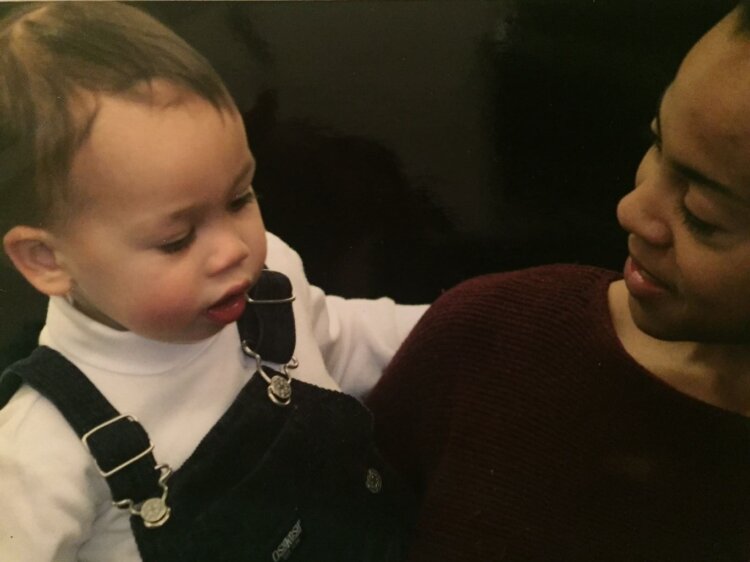
“I have a dream that one day … little black boys and black girls will be able to join hands with little white boys and white girls as sisters and brothers.” —Dr. Martin Luther King Jr. 1963, Washington, D.C.
When my daughter was in second grade, I helped her class celebrate Hanukkah, as I was one of the few Jewish moms. I returned to the class in January—as one of the black moms—to read a story honoring Dr. Martin Luther King, Jr. As I was on my way out, one little boy stopped me.
“Wait,” he said. “Martin Luther King was Jewish, right?”
When kids share snatches of their open-minded world-views, it’s so refreshing. You have to stop and acknowledge how much adults assume, how fixed our ideas can be. But as a child growing up in Montclair, New Jersey, this boy is so immersed in diversity, it’s not diversity to him. Children in our town know that “Jewish” comes in all colors and nationalities.
The Upper West Side of Manhattan was something like that when I was growing up in the 1970s. King’s dream of racial harmony was already thriving in many households there. Being biracial in that locale and era, kids who looked like me were visible at every turn. Having a white mom and black dad didn’t feel the least bit odd.
My husband is white and Jewish, like my mother. When we were planning our family, we knew we wanted what I’d had growing up: a hometown where being mixed was as ordinary as breathing. That’s what we found in Montclair. Our town is full of multiracial, multicultural, adoptive, and interfaith families, as well as many headed by same-sex parents. At school, my children have always had multiracial friends and classmates.
When they were small, I loved observing how my kids grappled with the various ingredients of their combined heritage. My son Theo, who had straight hair back then, fair skin and hazel eyes, would study photographs of Grandpa Mel—my late father, his only black grandparent—contemplating their connection.
Once when Theo was 6, he looked up from the picture he was drawing: a couple of robots and something exploding.
“Was Grandpa Mel Martin Luther King?” he wanted to know.
I smiled at the question. He’d conflated my late father with Dr. Martin Luther King, Jr. It wasn’t too hard to follow his reasoning. As far as Theo could see, my father and Martin Luther King had more in common than not: both black, both deceased, each iconic and legendary.
Dad was slighter than Dr. King, and wore thick, round, black-rimmed glasses, while the Reverend wore none. But in certain photographs, between the facial expression, the dark suits, and the hairline—tight, black kinks high on a broad, brown forehead—if you looked quickly at a photo of my father, you might see Dr. King, too.
The similarities between my father and Dr. King weren’t just physical. Dad, though an atheist, had enormous respect for the Black Church. He had a rich bass and, like Dr. King, was a masterful orator. My father marched for Civil Rights too—in Mississippi, Chicago, and Washington—handing out pamphlets, registering voters alongside fellow blacks and like-minded whites.
Theo was 3 years old the first time Martin Luther King, Jr. made an impact on him (the connection to Grandpa Mel being a few years away). On the Friday before King’s birthday, a friend of mine picked Theo up at preschool for a play date with her son. The boys, both children of biracial, black and Jewish parents, were chatting excitedly about the important man they had learned about that day.
“What was his name?” my friend asked, believing she knew the answer. There was silence as the boys looked at one another, uncertain. At last, Theo spoke up:
“Marvin Lutenstein.”
When I heard the story, I had a good laugh at my son’s Jewish-ization of the great Civil Rights leader, touched that he saw the world through the lens of his blended ethnicity. Then I wondered, as I often wondered, how much of my father’s history and culture would register for my children, with no one but me to teach them.
Theo is a teenager now. Though my father wasn’t around to read him stories, admire his musical compositions or athletic achievements the way his living grandparents have, a bit of Dad shines through his grandson’s aura. And thankfully, both my children have grown to understand their value as the joining of two cultures—walking images of Dr. King’s own dream.


Grok Nation Comment Policy
We welcome thoughtful, grokky comments—keep your negativity and spam to yourself. Please read our Comment Policy before commenting.